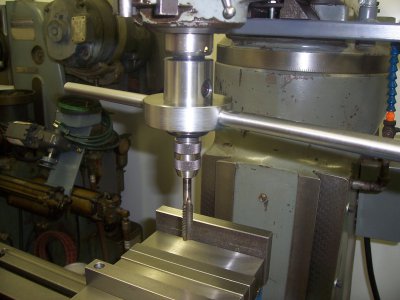- Joined
- Apr 8, 2013
- Messages
- 1,982
The taper tap that broke off in the first hole (F drill) had a half dozen uses in steel without issue. After I drilled the hole .265" per the machinery handbook I used a brand new HSS taper tap to start the thread and the effort was high. I then switched to a spiral 3 flute tap which went thru OK but the effort was noticeably higher than usual. It's junkyard steel and I have no idea as to the alloy.


